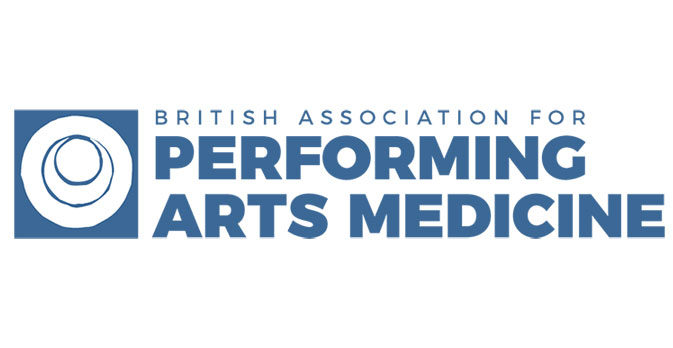Meet BAPAM, the medical health charity supporting the performing arts
PPL caught up with the charity’s Director, Claire Cordeaux, to find out how they have been helping performers through COVID, what services they are offering, and what advice they have for performers as we return to the “new normal”.

What is BAPAM?
BAPAM – or the British Association for Performing Arts Medicine – is a unique national charity which looks after the health of performers and creative practitioners across the UK, and is funded by charities (Help Musicians, PRS for Music Members Fund, Grand Order of Water Rats), unions (Musicians’ Union and Equity), and PPL We manage thousands of clinical enquiries a year and demand is rising.
Which services do you provide for those working in the performing arts?
We provide free clinical assessments for artists and other performing arts professionals with health problems impacting on their practice and maintain a network of over 200 clinicians across the UK, all experts in treating performers.
We also run training sessions and share free resources to help people perform optimally and healthily, preventing problems developing in the first place. Our services run in all four nations of the UK.
We work closely with benevolent funders (including Help Musicians, PRS Members Fund, and the Royal Society of Musicians) and treatment recommendations by our clinicians can often by funded by these generous bodies.
About 85% of performers are able to get back to performing in 6-12 months after seeing us. As we are uniquely placed to bring so many performing arts health and support specialists together, we produce guidance on best practice in the specialisms we support including mental health, hearing conservation and vocal health.
Which ailments/injuries can BAPAM help with?
Our main areas of support are creative practice-related physical injuries, strains and pain, mental health, vocal health and some hearing concerns, although people also present with eye and dental problems.
We work to complement NHS services, as performing arts workers, who are mostly freelancers with no ‘occupational health’ support, have some highly specialist health needs. Our clinicians have the experience needed to effectively diagnose and manage these problems, so our advice can help guide patients through the right care pathway.
What support are you providing to the performing arts community to help them through the pandemic?
All our clinical assessments are available online, and we encourage performance professionals to use these to solve any health issues during this period. In addition, we are commissioned to provide specific health services for certain groups; Equity, for example, commission us to provide counselling for members. We’re running a series of free webinars, delivered by experts on health issues that impact performers such as keeping mentally well, vocal health, and injury prevention.
During this period we also have a weekly Community Drop-in which enables performers who are trying to develop healthy practice to share successes and discuss barriers. Built around a healthy practice diary and with different experts introducing guided practice each session, we hope that this provides ongoing support and a chance to build some key skills for sustainable practice in this period and beyond.
Do you have any advice for those returning to work as we start to emerge from lockdown?
In general, try and keep up your healthy creative practice to build physical and mental fitness which you can draw on when you need it. If you are starting to see opportunities to perform or record, build up practice slowly – to avoid running into health problems, make sure you don’t overdo it – we haven’t all been able to keep “performance-ready” whilst home-schooling the kids, sharing living space with others and it’s hard to feel motivated when all gigs have been cancelled.
We have produced guidance on the practicalities and risks of getting back to work, and a risk assessment checklist that individuals and work/creative spaces can use in planning how to get back to work safely. Our FAQ section helps to answer some of the commonly asked questions. There is a lot of work being done on this across the globe, including research into aerosol generating levels of singers and woodwind and brass, and we are keeping these up to date as new knowledge becomes available.



